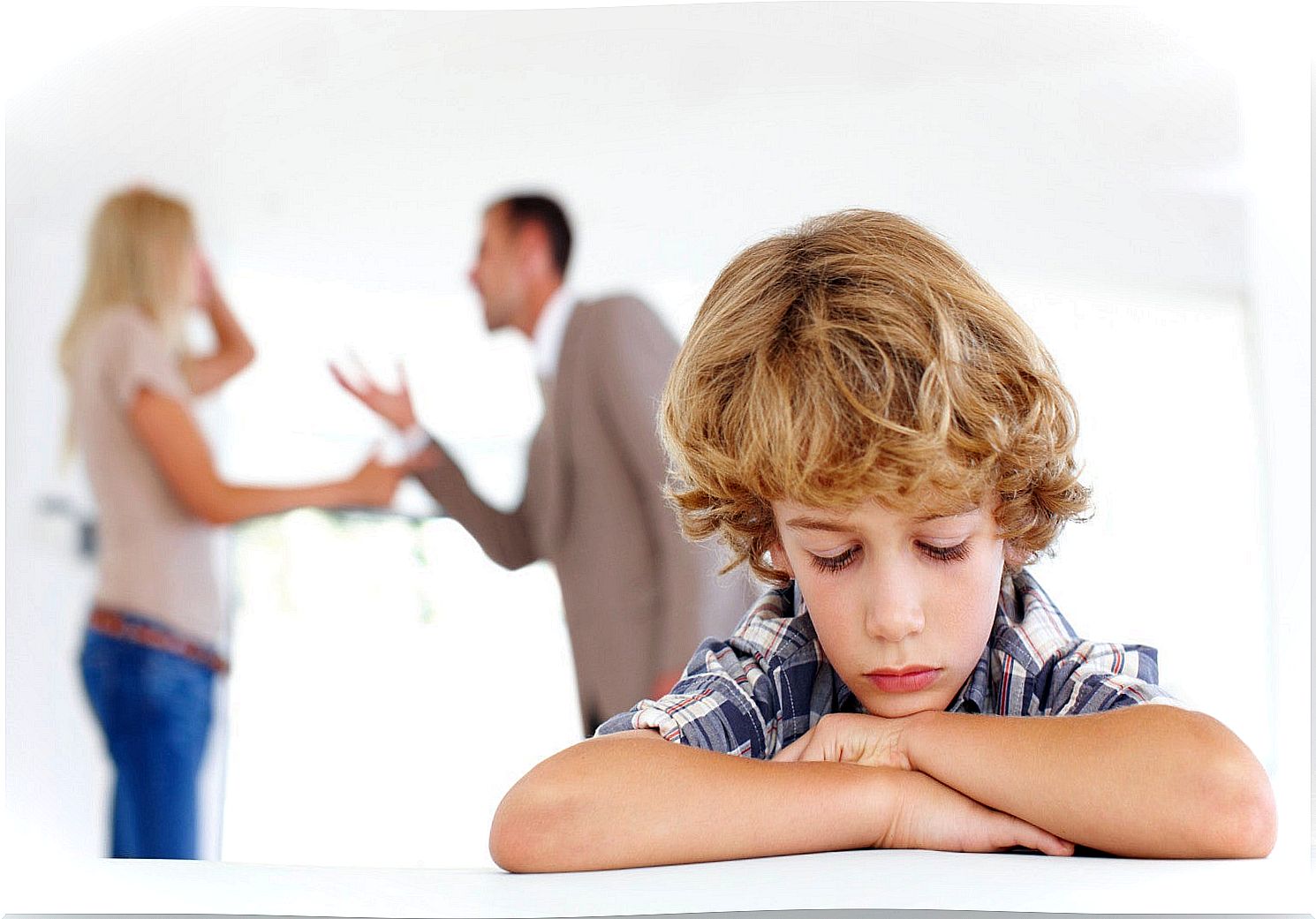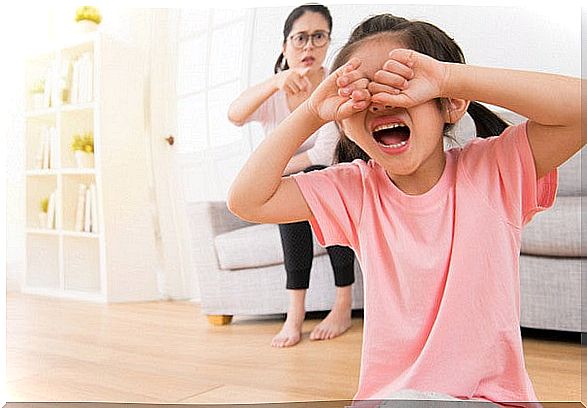Helping A Child Cope With The Death Of A Relative
Although death is a natural part of life, when it touches a loved one, it upsets us. With children, we have to help them cope with death and express the pain they feel.

Death is part of life. When he touches closely and a loved one passes away, he upsets all of us who love him. Helping a child cope with death can be difficult because they do not understand the meaning of loss and they need us to understand that they must express their feelings without fear.
The concept of ‘death’ depends on age

Children’s understanding of the meaning of death will depend on their age. For a baby up to 2 years old, the child only perceives the absence of the deceased person. From the age of 3, children may believe that death is temporary and reversible. Between 5 and 6 years they can already understand that it is definitive, they assimilate the differences between life and death.
They know that people die, but it will not be until they are 8 to 9 years old that they are able to understand that they too can die. After 10 years they already understand the meaning of death in its entirety.
Children’s reactions to death

The reaction of a child to the death of a loved one will be adjusted to what they observe in the rest of their family. In families that speak openly about the subject, the child will have the opportunity to express his pain and sadness. For families who consider it taboo to talk about death, it will be more difficult for children to cope because they will not know how to express what they feel.
Some children may express their pain in silence and others will express their sadness. Some, on the other hand, may behave uncontrollably and defiantly. There can also be regression chaos, anxiety, anger, and depression. It will also depend on the bond that linked you to the deceased relative.
Depending on the age of the child, reactions to death can also occur at school. Problems such as lack of attention and concentration, difficulties with memory (forgetfulness become frequent) may appear and school performance may decrease.
Measures to help children cope with death
Just as the age of the child influences the way of coping with death, it is also important how close the relative was. The death of a grandfather, grandmother, uncle or cousin will not be as traumatic as the death of a father or brother. However, more than possible, it is necessary to help them face death, express their pain and start the grief they must live to overcome the loss of that loved one.
Communicate the news as soon as possible
There is no ideal time to break the news of the death of a loved one. It must be done as soon as possible to help a child cope with the death of a family member. If the mother or father died, it is best if the living parent reports it. In the event that you feel very devastated, perhaps that responsibility should be assumed by another close family member.
Avoid euphemisms
The grandmother did not “go away.” Children must be clearly told that death is final. Answer all their questions in the most natural and calm way you can. Use appropriate language for the age of the child, you have to make the child understand.
You do not have to give details that the child does not ask for. If it is someone of advanced age or a disease, explain that we all die after aging or if we get sick. If it was the result of an accident, explain that what happened affected the body of the deceased person.
Allow him to express what he feels

The death of a father or mother creates a great void. The parent who is alive must try to cover all the affective or emotional needs of the child when receiving the news or participating in the funeral. In other words: perhaps the child needs your hug to cry. Others will need to talk. They may even play or be hyperactive at the funeral. Let them move. Surely, while playing he is draining the emotions that overwhelm him.
Avoid overprotecting
Some adults believe that they must protect children from death. They keep them away from funerals, they don’t cry or talk about the deceased. They even make up stories about the death to supposedly protect children from grief.
Despite these good intentions, that does not help children. Little ones need to express their feelings and talk about how much they will miss the deceased family member.
Express your own pain
It will do your child good to see you cry over the death of your loved ones. Seeing you openly express the pain that overwhelms you will help him express how he feels about the loss of that dear family member. Expressing your feelings is one way to help a child cope with the death of a family member.
By crying you teach them that crying is necessary and natural when they feel such great pain for the loss of someone they loved. What you should take care of is frightening your children. Children don’t need to see you break down to the point where they feel like they will lose you. The way you manage your pain will help them overcome the loss.
Farewell is the key to starting the duel
Whether or not the child should attend the funeral of a loved one will depend on the family and the child. If he is old enough, it is important that you explain what is going to happen at the funeral ceremony. Children can decide not to attend and that will be fine.
A child attending a funeral may also want to withdraw at some point. Respect his request, do not force him to be present. For this it is good that you have previously coordinated with someone you trust and that of the child, so that they withdraw as they express their desire.
In any case, try to get the child to say goodbye to the loved one. That can be through a letter if the child does not want to attend the funeral. They can also later visit the place where the body or remains rests. Farewell is key to starting the mourning and helping a child cope with the death of a relative, but it does not have to occur in front of the body of the deceased relative.









